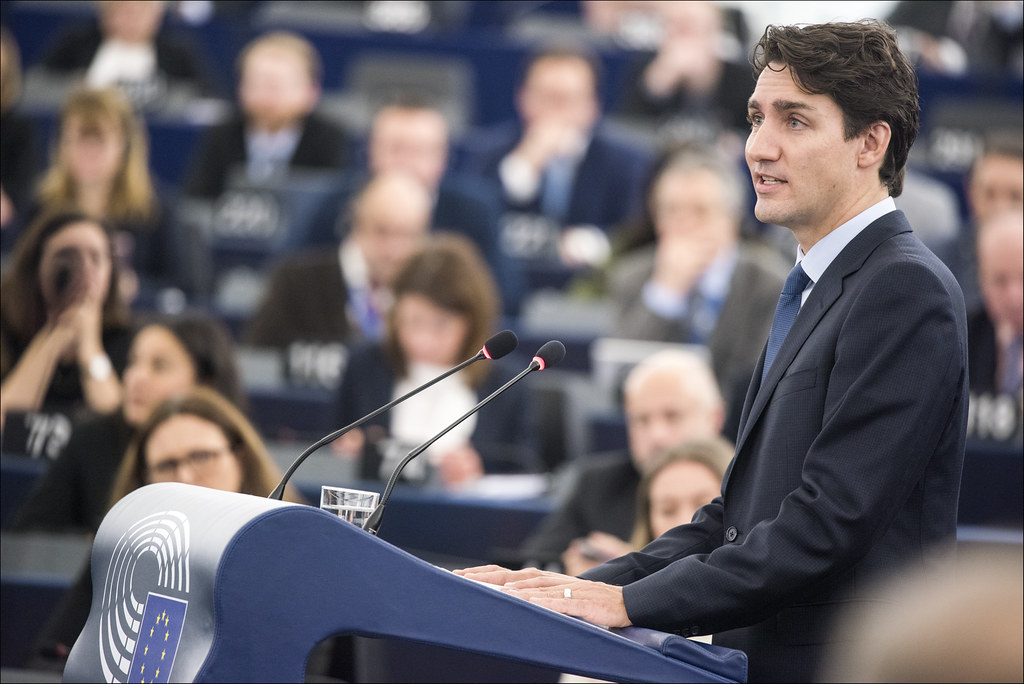Trudeau Questions on Foreign Interference in Canadian Politics
Prime Minister Justin Trudeau expressed concerns over the methodology used in a recent report by the National Security and Intelligence Committee of Parliamentarians (NSICOP) during a press conference at the conclusion of the G7 summit in Italy. The report suggested some Canadian parliamentarians were “semi-witting or witting” participants in foreign states’ attempts to meddle in Canadian politics.
“We made clear some concerns we had with the way that NSICOP did, drew conclusions,” Trudeau stated. “I think that is an important part of the process.” His comments align with those of Public Safety Minister Dominic Leblanc, who previously noted the government’s disagreement with certain interpretations of the intelligence presented by the committee.
NSICOP, established in 2017, serves as an independent, high-level review body of Canada’s national security and intelligence organizations. Comprised of lawmakers from all major parties, the committee members hold the highest security clearance and are bound to secrecy under the Security of Information Act.
Despite being pressed for specifics, Trudeau did not elaborate on the exact nature of his concerns. He emphasized the importance of NSICOP’s role in providing parliamentarians from all parties with full access to the work of intelligence agencies, a development he credited to his government. “That’s an important step that wouldn’t have happened if the Conservative party remained in power,” Trudeau asserted.
The House of Commons recently voted in favor of a Bloc motion requesting Marie-Josée Hogue to expand her foreign interference inquiry to include an investigation into the committee’s findings. Trudeau welcomed this move, noting the significance of bodies like the foreign interference inquiry in examining intelligence matters.
Trudeau sidestepped repeated inquiries about whether any current Liberal MPs were named in the report as witting or semi-witting participants in foreign interference. “The issue of foreign interference is one that this government has taken extremely seriously,” he reiterated. He also highlighted ongoing efforts to follow up on the NSICOP report through various reports and inquiries on foreign interference.
Green Party Leader Elizabeth May and NDP Leader Jagmeet Singh were granted access to the committee’s confidential report this week, though Conservative leader Pierre Poilievre has not yet acquired the necessary security clearance.
Singh, alarmed by the findings, told reporters, “In short, there are a number of MPs who have knowingly provided help to foreign governments, some to the detriment of Canada and Canadians.” However, he refrained from disclosing the number or political affiliation of the implicated MPs, asserting that no NDP MPs were involved.
In contrast, Elizabeth May offered a more tempered interpretation, denying the existence of a “list of MPs who have shown disloyalty to Canada” and labeling some of Singh’s comments as “too hot.”
Singh has criticized Trudeau for not acting sooner on the report, which the Prime Minister accessed nearly three months ago. “He may disagree with that intelligence, but I believe … he has sent the message that he is willing to accept some level of foreign interference,” Singh stated earlier this week.
As the debate continues, Trudeau maintains the government’s commitment to addressing foreign interference, highlighting the importance of robust intelligence oversight and bipartisan cooperation.



